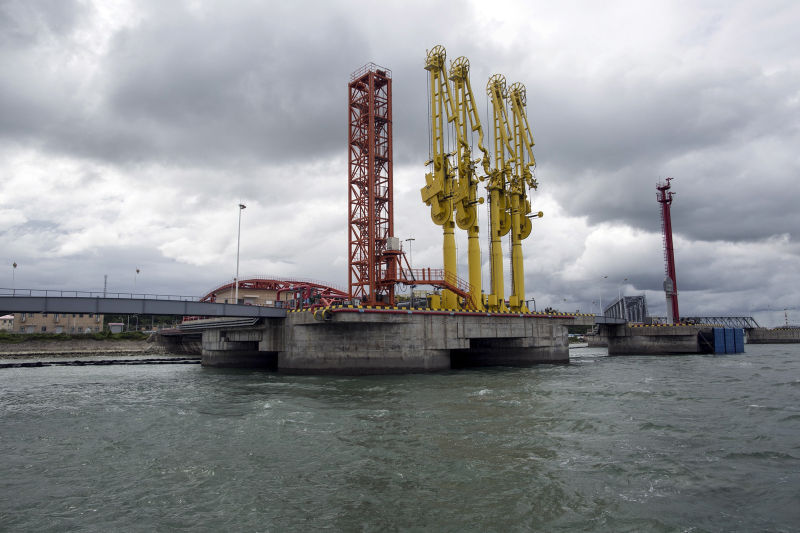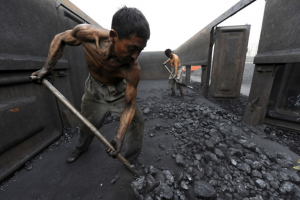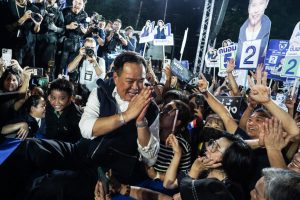Myanmar’s central bank has announced a broad exemption of foreign entities from a contentious requirement to convert foreign exchange into the local currency, after the order early this month alarmed foreign business groups and residents.
The exemption, dated April 20, applies to companies with approved foreign investments, firms in special economic zones, international non-government organisations, embassies, United Nations agencies and airlines.
In an effort to exert more control over foreign currency flows in the military-run nation, the central bank declared from April 3 that foreign exchange earned locally must be deposited at licensed banks and exchanged for the local kyat currency within one working day.
But the move rattled businesses in Myanmar, which has seen a mass exodus of foreign firms in the past year, spooked by conflict, instability, sanctions and policy uncertainty in the wake of the military’s coup in February 2021.
The change will provide some relief for fuel importers, which, according to some industry sources, have been impacted by the exchange requirement.
Critics slammed the move as a bid for foreign currency by military generals who have lost touch with the hardships of citizens’ daily lives.
Indeed, the civil war has intensified in eastern Karenni state, where over 230,000 people have been displaced amid reports of planes bombing schools and hospitals, plus daily clashes between troops and multiple rebel groups. People’s Defence Force groups are also involved in near-constant fighting in Magway Division and Chin State in the upper northwest.
A few days after the foreign exchange order was announced, gunmen shot the deputy governor of the central bank at her flat in Yangon. Anti-regime groups have been ramping up attacks on officials working for the junta, but it is not known if the shooting of Than Than Shwe, 55, was linked to the order or not.
The exemption notice did not provide a reason for the about-face, which came after some industry groups and embassies warned business activity in the country could be severely impacted.
The American and European chambers of commerce were among signatories to a joint statement from foreign business chambers that had warned the new currency rules would create “insurmountable challenges” for some businesses and would disconnect the country from the global financial system.
Myanmar’s fragile economy has been in crisis since the coup, which halted a decade of political and economic reforms and sent the kyat into a downward spiral.
Energy Projects Sought to End Blackouts
Meanwhile, Myanmar’s government said on Thursday it plans to increase investment in the energy sector, seeking to shore up the supply of power as the country grapples with lengthy daily blackouts.
The outages have compounded economic woes faced by ordinary citizens still reeling from the turmoil that has ensued since the military seized power in February last year.
Information Minister Maung Maung Ohn blamed the outages on rising liquefied natural gas (LNG) prices due to the Russia-Ukraine conflict and on what he called “terrorist action” linked to People’s Defence Force units, which have formed in many parts of the country in opposition to the military takeover.
He repeated denials of a fuel shortage. Long queues of motorists were seen at petrol stations earlier this week but have since mostly subsided.
“Rumours of a shortage that have spread on social media are misinformation,” he told a virtual briefing, adding that Myanmar had 45 million gallons of petrol and 70 million gallons of diesel in stock.
Maung Maung Ohn said the government’s energy investments will centre on repairing infrastructure and on natural gas and renewable energy.
Myanmar has embarked on solar projects with a combined capacity of 390-megawatts and announced tenders for another 18 with a combined capacity of 635-MW.
A 1,390-megawatt LNG-power plant being built with three Chinese companies is slated to begin operations in 2027.
The operation of Myanmar’s largest gas field, Yadana, has not been affected by the withdrawal of TotalEnergies, Investment Minister Aung Naing Oo told the same briefing.
Chevron has also said it would exit, but the government had not received formal notification on that yet, he added.
- Reuters, with editing by Jim Pollard and George Russell
Additional details were added to this report and the headline changed to reflect this on April 21, 2022.
READ MORE:
Chevron to Exit Myanmar as TotalEnergies Backs Sanctions
Myanmar’s Junta Tightens Forex Flow Control – Diplomat
Myanmar Central Bank Vice-Governor Shot at Home in Yangon
Myanmar Junta Approves Sale of Telenor’s Local Unit
























